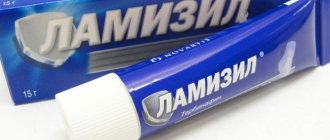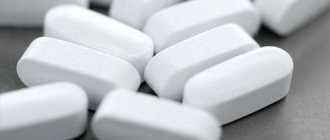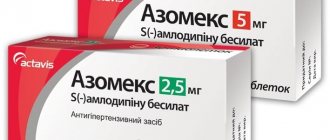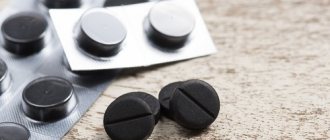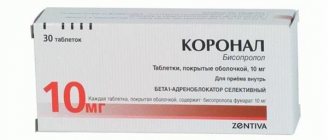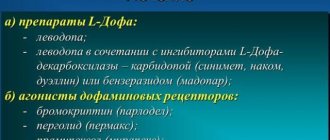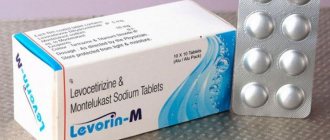general information
This is a broad-spectrum antiseptic intended for oral use. It has the following medicinal effects:
- has an anti-inflammatory effect;
- acts as an analgesic;
- antifungal effect;
- relieves irritation of the mucous membrane of the upper respiratory tract;
- helps reduce nasal congestion;
- removes the effect of irritation of the mucous membrane of the throat;
- relieves pain in the throat.
Contraindications, side effects
According to the instructions for use, Adjisept has a minimal number of contraindications. These include:
- children under 5 years of age;
- intolerance to components;
- scratches on the nasopharyngeal mucosa.
People with diabetes should consult a doctor before starting treatment with the drug, as it contains sucrose.
An overdose of the drug or intolerance to the components may manifest itself as increased sore throat, attacks of nausea and vomiting, irritation and skin rash.
Indications for use
Agisept is prescribed for the treatment of diseases such as:
- pharyngitis;
- tonsillitis;
- laryngitis;
- inflammatory diseases of the oral cavity; larynx, throat;
- various inflammatory diseases of the mouth, throat and larynx of professional origin (for example, teachers, speakers or workers in the chemical and coal industries);
- effectively eliminates hoarseness, helps with cough;
- aphthous stomatitis;
- eliminates symptoms of milk in the oral cavity;
- gingivitis;
- inflammation of the mucous membrane of the mouth and gums.
What do lollipops help with?
The scope of application of lozenges is determined by their properties and place of influence. In ENT practice, Agisept is used for infectious and inflammatory pathologies of the pharynx and larynx:
- Tonsillitis.
- Pharyngitis.
- Laryngitis.
The medication becomes useful not only for sore throats, but also copes with coughs caused by irritation of the upper respiratory tract. In addition, lozenges are used for inflammatory lesions of the oral mucosa and gums - stomatitis, gingivitis, thrush.
Mode of application
The dose of this medicine that can be taken directly depends on how complex the inflammatory process in the oral cavity is.
Intended use for adult patients : lozenges should be taken every two times, 1 tablet.
If for some reason you missed one dose , then next time you do not need to double the amount of lollipops.
Doctors do not recommend taking more than 8 tablets in one day. Despite the fact that they taste good, remember that this is still a medicine, not a delicacy.
Children over 6 years old can take no more than four Adjisept tablets during the day. That is, 1 lozenge no less than every 4 hours.
The medicine must be dissolved until completely dissolved in the mouth; there is no need to swallow it.
Contraindications and side effects
The medicine is not used if intolerance to the main or auxiliary components of the composition is detected.
There are other contraindications for treatment:
- The presence of purulent foci or extensive damage in the oral cavity. The drug may cause irritation and other complications.
- Dental pathologies that may worsen when using tablets.
- The patient's age is up to 5 years.
- The period of lactation and childbearing at different periods. The drug can only be used as prescribed by a specialist and in the presence of strict indications.
- Acute liver diseases of viral origin.
- Severe liver failure.
- Acute and severe chronic kidney diseases.
- Exacerbation of chronic pathologies of the digestive tract.
- Mental disorders in acute form.
- The rehabilitation period after undergoing surgery on the digestive tract.
- Swallowing reflex disorder.
- Respiratory failure.
The drug is used with caution and not so often for the treatment of elderly patients suffering from chronic severe diseases of the heart and blood vessels.
Adjisept is a lozenge (the price of the product depends on the quantity in the package), which can cause complications if the recommendations are not followed. If the rules are followed, the risk of developing negative reactions cannot be completely eliminated. The official instructions indicate that no negative reactions occur during use, but patient experience proves the opposite.
| Damage area | Most common negative reactions |
| Digestive tract | With long-term use of the tablet, it is possible to develop heartburn, pain in the stomach, and upset stool. Patients often report loss of appetite and indigestion. If left untreated, symptoms may worsen. Typically, such reactions occur in patients who suffer from chronic forms of pathologies of the digestive system. |
| Nervous system | Disorders of the nervous system usually develop against the background of allergic manifestations or aggravation of symptoms of pathologies of the digestive tract. Patients may report sleep disturbances, fatigue, and decreased performance. Many patients experience increased irritability and emotional instability due to systemic disorders. |
| Tissues of the mouth and throat | When using the medicine, the most common negative reaction is an allergy to the components of the composition. Moreover, it affects not only the mucous membranes of the throat and oral cavity, but also the skin of the face and body. The condition is accompanied by tissue swelling, rash and severe itching. In this case, the patient cannot eat food due to increasing discomfort during this process. |
The severity of complications in each case differs and depends on the individual patient, but the manifestations may disappear on their own after discontinuation of therapy. Despite this, in patients with a tendency to allergic reactions, symptoms may worsen and angioedema may develop.
An overdose does not develop during treatment with the drug; such cases have not been recorded by specialists. However, the possibility of such complications cannot be completely excluded.
If negative reactions or signs of overdose occur, you should immediately stop using the medicine and consult a doctor. In some cases, normalization of the condition will require the use of special medications, which are prescribed individually depending on a particular manifestation.
Release form. Compound
An Indian company produces medicines in the form of tablets and lozenges with various additives, namely, orange, orange/menthol, cherry/menthol, lemon, honey/lemon, strawberry, menthol.
The product has a biconvex shape. Lozenges are packed in blister packs of 6 pieces. There are 2 or 4 blisters in a cardboard pack.
The main active ingredients of the drug:
- 2.4 - dichlorobenzyl alcohol - in one tablet its content does not exceed 1.2 mg.
- amylmetacresol - one tablet contains - 0.6 mg.
Additional components in classic tablets: racementol, citric acid, natural oil of anise and peppermint leaves, sucrose, sodium lauryl sulfate, Azorubin and Ponceau 4R dyes.
Instructions for use
Adjisept are lozenges (the price of the medicine may depend on the specific pharmacy), which can be used according to the standard regimen for various disorders. But in each case, the doctor individually decides on the number of tablets per day and the duration of use.
The standard regimen involves dissolving tablets every 2 hours for 3-7 days, depending on the severity of the manifestations. The maximum daily dosage for an adult is 8 tablets. Children over 5 years of age also absorb the drug within 3-7 days, but the maximum dose for them is 6 tablets, and the interval between doses should not be less than 4 hours.
For sore throat
When diagnosing a sore throat, the patient must be prescribed antibacterial agents. But in addition, he uses local medications to improve the condition of the throat tissue. For such diseases, tablets are used according to the standard regimen, that is, the patient dissolves 1 tablet every 2 hours, without exceeding the maximum daily dose of 8 tablets.
Treatment of sore throat with Agisept usually lasts no more than 7 days, but other drugs are prescribed in long courses of up to 2 weeks. Children also use the product according to the standard regimen, that is, 6 tablets per day with intervals between resorption of 4 hours.
For tonsillitis
In the acute form of the disease, adults and children use the medicine according to the standard regimen. The former take 8 tablets per day, the latter – no more than 6 tablets.
If there is an exacerbation of the chronic form of the pathological condition, it is enough to dissolve 4-5 tablets per day at equal time intervals. The therapeutic course lasts no more than 5 days. Other means can be used in combination with tablets, but in each case they are selected individually.
For pharyngitis
Treatment of patients with symptoms of pharyngitis involves prescribing 6-8 tablets per day, depending on age. The duration of the course rarely exceeds 7 days; in most cases, 4-5 days are enough to obtain a therapeutic result.
If the acute symptoms of the pathology disappear after 1-2 days, you are allowed to stop using it. It is recommended that you discuss refusal of treatment with your doctor.
Against cough
The drug does not affect the secretion and removal of mucus from the bronchi and lungs, and therefore does not help improve the condition when these organs are affected. But in cases where a cough develops against the background of irritation of the mucous membranes of the throat, dissolving tablets helps alleviate the condition.
Tablets are taken 4-8 tablets per day, depending on the severity of symptoms, treatment usually lasts no more than 5 days. If you need to use other drugs, you should first discuss their compatibility with lozenges.
Contraindications
Not recommended for use:
The medicine is not prescribed to children under 6 years of age.- Patients who have an increased sensitivity to some of the components of the drug.
- Individual intolerance to the ingredients of the drug.
- Agisept tablets should be taken with great caution by people diagnosed with diabetes. One lozenge contains 2.4 g of sucrose.
In extremely rare cases, the use of Agisept may lead to side effects such as allergic reactions (urticaria), irritation of the oral mucosa and Quincke's edema.
At the first manifestation of allergy symptoms, you should stop taking the drug and seek help from a doctor.
During pregnancy and lactation
The ingredients that make up the drug have a local effect on the body. They practically do not penetrate into the systemic circulation. Therefore, pregnant women and nursing mothers can take this drug. But the final decision can only be made by a specialist.
In order for the treatment to be effective and give the desired result, pregnant and breastfeeding women must strictly adhere to the recommendations of the attending physician and in no case exceed the prescribed dose of the medication.
pharmachologic effect
The active ingredients of Adjisept have analgesic, anti-inflammatory and local anesthetic effects. The drug is active against a large number of gram-positive and gram-negative microorganisms and has an antifungal effect.
Also, according to reviews, Agisept reduces nasal congestion and helps alleviate irritation and sore throat.
During breastfeeding and pregnancy, Agisept can be used according to indications, since the active components of the drug practically do not enter the systemic bloodstream.
Analogs
Adjisept's analogues are:
Septolete is an antiseptic, prescribed for pharyngitis, tonsillitis, laryngitis and gum inflammation.- Suprima - Lor is a combined antiseptic for the treatment of various infectious diseases of the oral cavity and pharynx.
- Strepsils is the most effective and popular remedy for the common cold. It is used to treat pharyngitis, tonsillitis, bronchitis and colds. Used as an antiseptic to treat sore throats.
- Koldakt - prescribed for influenza, allergic and chronic rhinitis, and sinusitis.
- Lorpils - purpose: infectious diseases of the throat and oral cavity.
- Astrasept is used in dentistry and ENT practice.
- Gorpils - stomatitis, gingivitis, thrush, tonsillitis, pharyngitis, laryngitis.
- Neo-angin - has an antiseptic effect. Effective against pathogenic and yeast-like fungi. It relieves pain in the throat and makes swallowing and breathing easier.
- Phytodent - designed for rapid healing of damage to the oral mucosa. It has a well-expressed anti-inflammatory effect. Prescribed for stomatitis, periodontitis, gingivitis.
Analogues at a similar price
If symptoms of intolerance to the components of the drug appear, you can replace it with high-quality analogues from this list:
- Dr. Theiss (produced in Germany);
- Karmolis (produced in Austria);
- Septolete (produced in Slovenia);
- Hexoral (made in France);
- Faringosept (made in India).
All medications are sold in pharmacies without a prescription, have a gentle composition, clear instructions, and an affordable price. But before starting treatment for your throat, you need to consult a doctor to draw up a complex therapy regimen.
Terms and conditions of storage
The drug should be stored away from children, moisture and direct sunlight. The maximum storage period is 3 years.
The production date of the product is indicated on the packaging; use after its expiration is prohibited.
Adjisept is an effective and fast-acting lozenge with antimicrobial and anti-inflammatory properties. The price of the product is affordable, so every patient can take a full course. It is recommended to use the medicine as prescribed by your doctor to prevent complications.
Some analogues, prices
The drug has analogues that can be used if it is not available in the pharmacy or cannot be prescribed to a specific patient.
Today, the most popular substitutes are the following medications:
- Septolete has a fairly high cost, which is approximately 270-300 rubles. The drug is considered effective, contains essential oils and is available in the form of lozenges for resorption. The medicine is prescribed mainly to adults for sore throat, laryngitis and pharyngitis and other pathologies accompanied by inflammation of the mucous membrane of the throat.
- Strepsils contains the same active ingredients as the original medication, but its cost is approximately 200 rubles. The drug is available in the form of lozenges in different flavors and aromas. The medicine is prescribed mainly at the initial stages of the development of the pathological process. It is considered quite effective and helps to quickly eliminate pain, inflammation and swelling of tissues.
- Stopangin 2A is a lozenge with different flavors that has pronounced anti-inflammatory, antibacterial and local anesthetic properties. The latter action is carried out due to the presence of benzocaine in the composition. The drug is considered quite effective, even when used in advanced stages of the disease. Its cost is approximately 120-150 rubles.
A substitute should only be selected by a doctor, which will avoid complications. Analogs may contain other active ingredients, so they often provoke various negative reactions.


